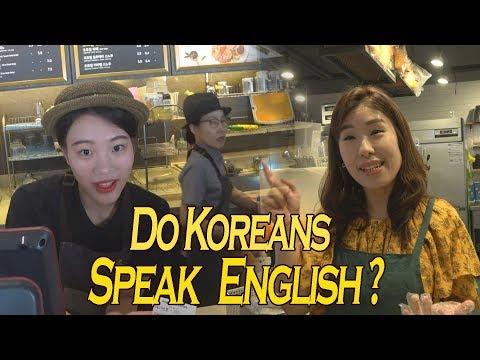The first time I set foot in South Korea, I was brimming with excitement, having heard so much about the country’s vibrant culture, stunning landscapes, and dynamic cities. However, I was also somewhat apprehensive about the language barrier. My knowledge of Korean was limited to a few phrases, and I wondered how I would manage navigating this fascinating country where English wasn’t the native tongue.
The moment I arrived in Seoul, I noticed the hustle and bustle of the city. The streets were teeming with people, neon signs flashed in an array of colors, and the aroma of delicious Korean street food wafted through the air. I felt a sense of exhilaration and curiosity, eager to immerse myself in the experience. However, reality hit me when I tried to ask for directions to my hotel. My attempt to communicate in English was met with polite smiles and confused looks.
Despite my initial concerns, I quickly learned that many Koreans do, in fact, speak English—though the level of proficiency varies greatly. In major cities like Seoul and Busan, English is more commonly understood, particularly in areas frequented by tourists. Most younger Koreans, especially those in the service industry or who are university students, have a decent grasp of English. Their ability to communicate can range from basic to quite fluent, depending on their level of education and exposure to the language.
My first encounter with a local who spoke fluent English was at a small coffee shop in Hongdae, a trendy district known for its vibrant arts scene. The barista greeted me with a warm smile and a perfect English accent, asking if I needed help with the menu. I was taken aback by how effortlessly we conversed, and it made me feel at ease. I ordered a cappuccino and chatted with her about the best places to visit in the city. She shared her recommendations enthusiastically and even gave me a map with a few personal tips.
The ease of communication in some places was a relief, but I soon realized that not everyone I met was as comfortable with English. During my visit to a traditional market, I encountered several vendors who struggled to understand me. When I asked about the prices of various items, I was met with gestures and occasional English words mixed with Korean. It was clear that while they were friendly and eager to help, their English was limited.
One memorable experience was at a small, family-run restaurant in a quieter neighborhood. The menu was entirely in Korean, and the staff spoke very little English. I felt a pang of anxiety as I tried to decipher the options. Noticing my struggle, an elderly woman at a nearby table, who had been observing, came over and offered assistance. She spoke English with a charming accent, and with her help, I was able to order a delicious array of traditional Korean dishes. Her kindness was a testament to the fact that while English may not be universally spoken, there is always a willingness to bridge the gap.
Throughout my trip, I discovered that my level of success in communicating in English largely depended on the context. In touristy areas, like Myeongdong and Itaewon, English was more commonly spoken. Signage, menus, and even some public transportation announcements were available in English, making it easier for visitors to navigate. However, in more local or rural areas, English proficiency was less common, and I often relied on translation apps or simple gestures to get by.
My experience was further enriched by the interactions I had with locals who were eager to practice their English. Many young people, especially university students, were keen to engage in conversation and improve their language skills. These encounters were often some of the most rewarding moments of my trip. I met a group of students in a park who wanted to practice their English, and we spent hours chatting about everything from K-pop to global politics. They were excited to share their culture with me and learn about my background in return.
Despite the challenges I faced with the language barrier, I found that the effort to communicate was always appreciated. Whether it was learning a few basic Korean phrases or using translation apps to bridge the gaps, the effort was met with smiles and a sense of camaraderie. The experience taught me that while English might not be universally spoken in Korea, the willingness to connect and understand transcends language.
My journey through South Korea was a blend of moments of smooth communication and times of charming miscommunication. Each experience added to the richness of my travels, highlighting the beauty of cultural exchange and the ways in which people from different backgrounds can come together. The kindness and patience of the Koreans I encountered made my trip memorable, proving that while language may sometimes be a barrier, it is also an opportunity for connection and mutual understanding.
